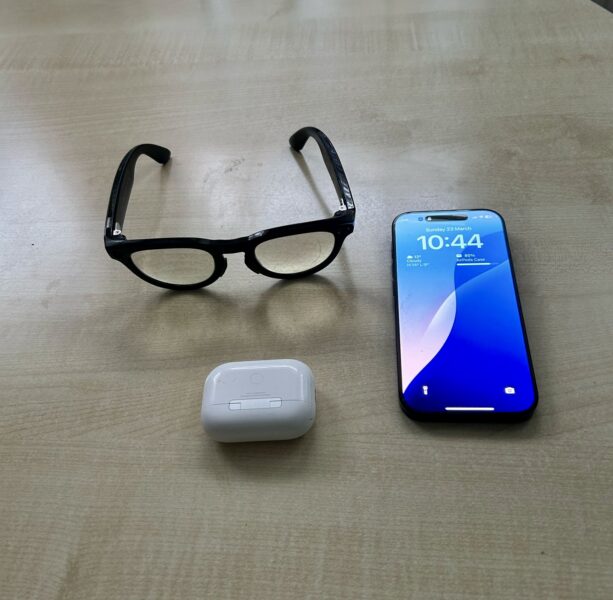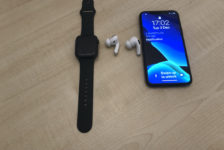The European Union’s recent ruling on interoperability under its landmark Digital Markets Act (DMA) is being framed as a privacy battleground by Apple. In a carefully worded post last week, the company warned that opening up iOS to third-party developers and accessories could lead to “unfettered access” to the iPhone, threatening the security and privacy of its users.
But there’s another side to this story—one that hasn’t had enough airtime. For disabled people, especially those who rely heavily on hands-free and voice-first technologies, the EU’s push for interoperability is not just a regulatory intervention. It’s potentially transformative.
The problem with Apple’s walled garden
Don’t get me wrong—Apple has done more for accessibility than most tech companies. I use their devices and services daily and appreciate the deep integration of features like Voice Control, Dictation, and HomeKit. But their ecosystem can also be a double-edged sword, especially when it comes to interoperability.
Take “Messaging with Siri.” If you wear Apple’s AirPods, you can send and receive messages totally hands-free—a powerful tool for someone who can’t type or tap. But wear Ray-Ban Meta smart glasses instead, and you’re locked out. No hands-free iMessages, no Announce Notifications, no access to Siri for smart home control. You’re effectively punished for choosing a non-Apple device that might suit your physical needs better.
The same goes for dictation tools. Since Nuance abandoned its Dragon Professional for Mac users in 2018, there’s been no proper replacement. Apple’s own dictation software is decent, but it doesn’t learn from mistakes or handle complex language like Dragon did. Third-party developers could step in—if they had fuller access to Apple ecosystems. But they don’t. Apple keeps its doors firmly closed.
Why interoperability matters
The DMA changes this. It outlines nine iOS-exclusive connectivity features that Apple needs to make available for other platforms to use and integrate more fully with their platforms. For accessibility, three of the most exciting are:
• Opening iOS notifications to devices like smart glasses and non-Apple earbuds—helping people who need audio alerts in real time without having to look at a screen. Right now, if the BBC sends an urgent news alert, it will be read aloud through my AirPods, but if I’m wearing Ray-Ban Meta smart glasses, I hear nothing. That’s a glaring example of how Apple’s closed ecosystem limits functionality for disabled users.
• Easier device pairing without needing multiple taps or menus—critical for people with limited hand dexterity. Similar to the ease of pairing AirPods.
• Automatic Bluetooth audio switching allowing non-Apple audio devices to seamlessly shift between audio sources—something currently reserved for AirPods. For disabled people who need a hands-free experience, this kind of smooth switching is essential. No tapping, no clicking, no fiddling with settings—just uninterrupted access to sound, the way it should be.
Apple has reluctantly agreed to implement all nine interoperability requirements, with initial changes rolling out in iOS 18 and further support likely to continue into iOS 19. The company maintains that the mandates could compromise user privacy and stifle innovation, but it has little choice under the EU’s Digital Markets Act. While Apple’s tone suggests ongoing resistance, the practical outcome is clear: its iOS ecosystem is beginning to open up, however begrudgingly, to greater integration with third-party devices and services.
The company says the DMA means “giving away our new features for free to companies who don’t have to play by the same rules.” I’m sympathetic to that argument to a point. It’s fair that Apple should enjoy a period of exclusivity for the features it creates—say, two or three years. But five years? That’s how long Announce Notifications and hands-free Siri messaging have been locked to AirPods. That’s too long. And it’s hurting disabled users.
EU should have gone further
There are two key areas the new EU interoperability law doesn’t yet cover—but should.
• Seamless hands-free messaging across third-party audio devices—not just AirPods. For disabled people who rely on voice to send and receive messages, this functionality should be available across all compatible Bluetooth devices, not locked behind Apple’s proprietary hardware.
• Smart home control using third-party earbuds, smartwatches, and smart glasses. At present, if you’re using Ray-Ban Meta smart glasses or any other non-Apple voice-enabled device, you can’t control your HomeKit devices by voice. As someone who depends on hands-free interaction to turn on lights or adjust the thermostat, that’s more than a technical limitation—it’s a daily barrier. And I’m not alone. Meta CEO Mark Zuckerberg has publicly criticised Apple’s closed ecosystem and made repeated interoperability requests, none of which have gone down well in Cupertino.
A privacy trade-off worth debating
Apple often defaults to “privacy” when defending its walled garden. But I would like to see them do what they’ve never done: trust users with that trade-off. Offer a toggle. Make the risks clear. Let me decide if I want to sacrifice a layer of privacy for the chance to use my Ray-Ban Meta glasses to reply to a message, or my third-party earbuds to control the lights in my room.
Because for many disabled people, that’s not a trivial trade-off—it’s the difference between independence and dependence.
A path forward
There is precedent here. Apple embraced Matter, the cross-platform smart home standard. It could do the same for messaging, dictation, and Siri home control—opening them up for deeper and more seamless integration with third-party products without compromising security, and in a way that still protects its commercial edge.
The EU’s intervention isn’t perfect. But it is forcing a conversation that’s long overdue. And for once, accessibility isn’t an afterthought—it’s a real, tangible benefit of a regulatory change designed to challenge the status quo.
Apple says the DMA will wrap them in red tape. I say it might finally unwrap something far more valuable for disabled people: choice.






